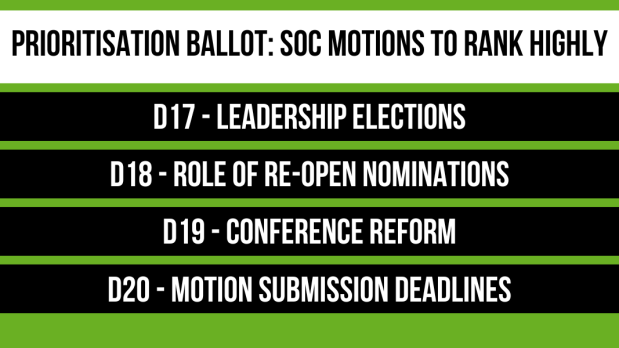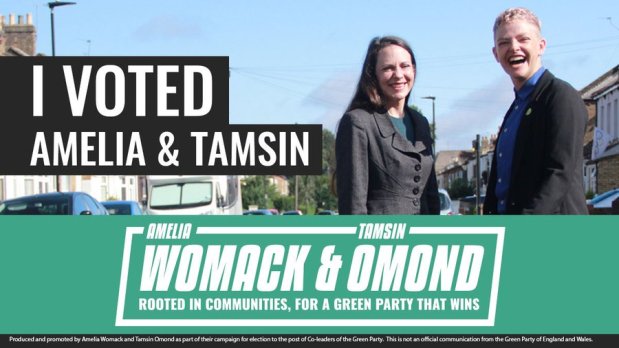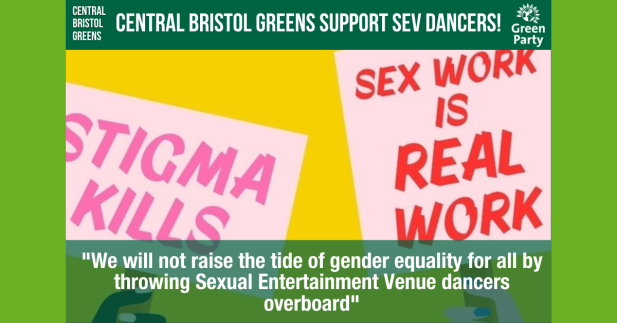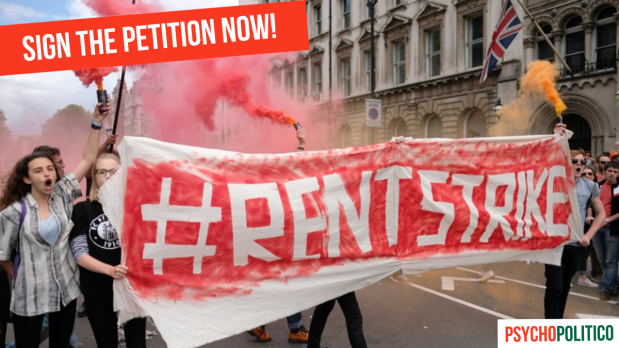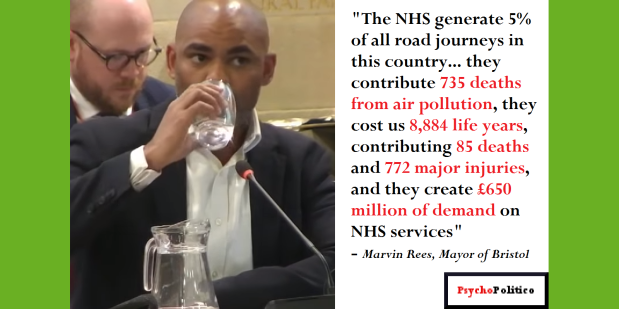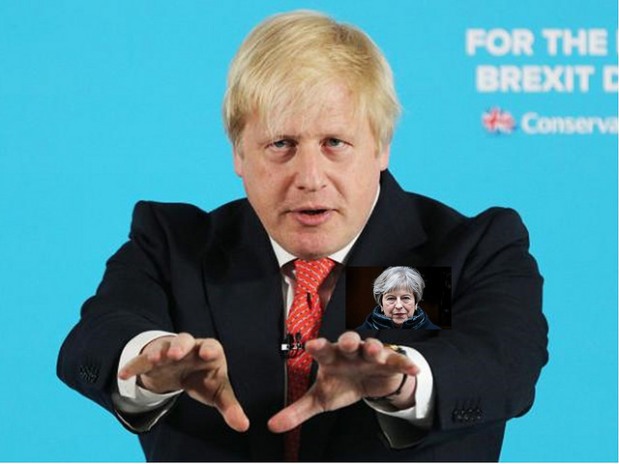You might have noticed that the Green Party have agreed an electoral pact with Plaid Cymru and the Lib Dems under the banner Unite to Remain. It is a non-aggression pact that agrees a list of seats in which two of the Parties agree not to field a candidate, leaving one clear Remain candidate.
This is now the subject of much debate within the Green Party, and I’ve found myself conflicted over it. I’m sharing my thought process below because it might help colleagues who are similarly conflicted. I’m more than happy to discuss it all in the comments.
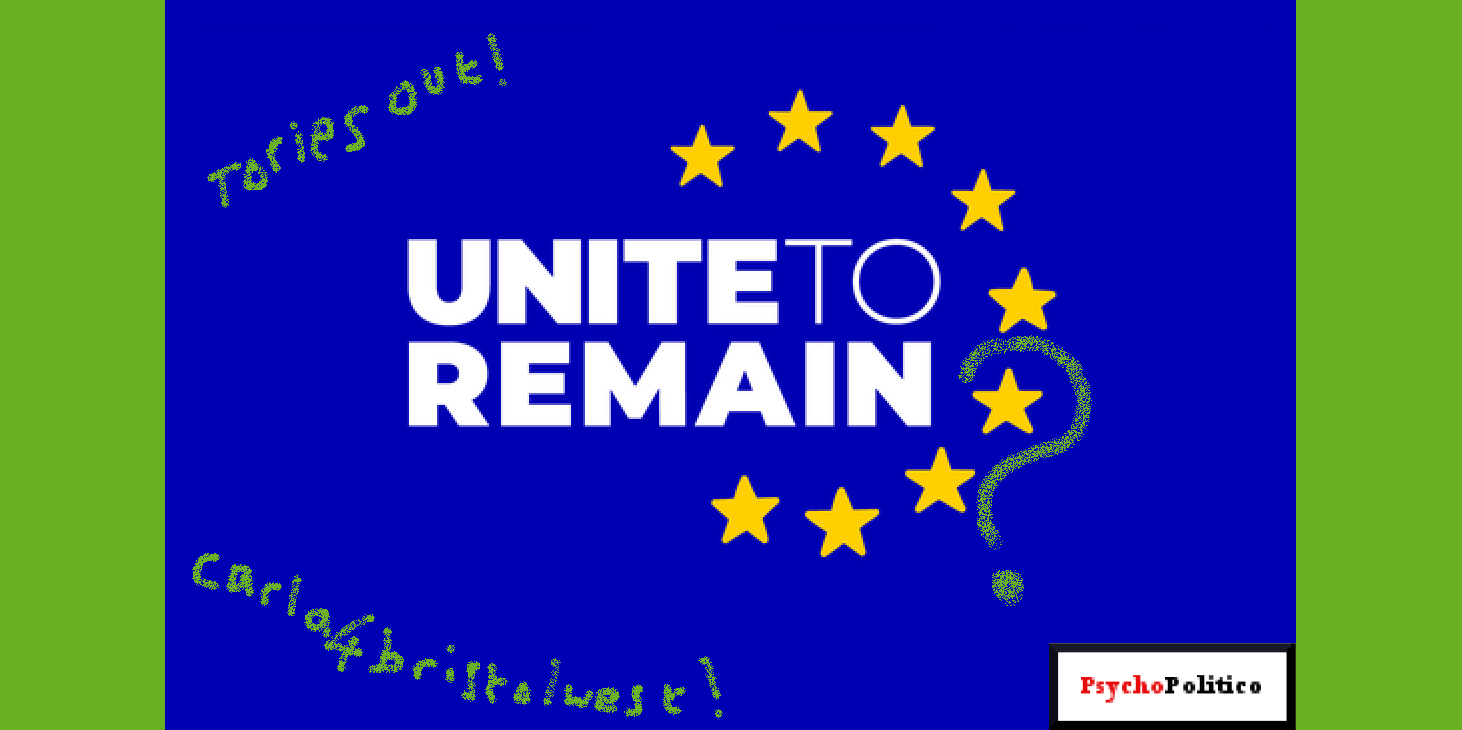
TL;DR version
I am holding my nose and supporting our leadership’s decision to take us into this pact. I don’t like it, and think a better approach to working with Labour without needing them to stand aside could have seen us reach a national level stand aside agreement based on policy commitments and post-election influence.
Having said that, I am familiar with Labour’s intransigence, and they have to accept a lot of responsibility for this pact feeling necessary to the Greens.
It is not clear to me that electoral pacts per se violate our principles, or even that a pact with the Lib Dems does so either. Arguably, the pact is in line with our strategic aims as a Party, and whilst there are tactical risks, there are clear tactical opportunities too. How are we going to feel if we end up with 3 Green MPs as a result of this pact?
I think Greens should stop standing aside unilaterally for Labour candidates, and should consider what it means to be in a political Party. Learn from the 2017 Bristol North West experience and do the work of negotiating agreements with Labour.
And if the Tories are returned to power, we should assess the extent to which our involvement in this pact is responsible for that, without fear of pointing out the extent to which Labour themselves are also culpable.
Overall, we should hold our leadership to account for the extent to which the pact succeeds or fails. If it fails, they need to stand down at the next leadership election so the Party can decide on a new direction.
But if it succeeds, they will deserve a huge amount of credit, and a lot us will need to be willing to re-evaluate what we think we know about fighting general elections.
Working through my thoughts about the Unite to Remain pact, I’m thinking in three broad areas: principles, strategy, tactics.
Principles
There are two key questions here:
- Are electoral pacts in general against Green Party principles?
- Is this specific Unite to Remain pact against Green Party principles?
Are electoral pacts in general against Green Party principles?
There is an argument that any kind of electoral pact is un-democratic because it removes a choice from voters as a result of backroom deals between Parties. Aside from the purely pragmatic concern (just because a Green stands aside for a Lib Dem, doesn’t mean someone who would have voted Green will now vote Lib Dem), there is a sense here that electoral pacts are a form of election rigging. As a pluralistic Party that believes in power being shared between multiple Parties, and wants a fair, proportional voting system, electoral pacts run against the grain.
I’m not convinced of this line of reasoning as an argument against electoral pacts generally. There is no obligation on a Party to field a candidate in any given election, and no Party contests every single available seat. And once a Party does field a candidate, they don’t come with pre-banked votes, they have to win those at the election.
Every single election, Greens come under pressure from Labour to not field candidates and stand accused of splitting the left vote. So it’s truly bizarre that so many people have switched seamlessly from telling Greens not to split the vote, to telling Greens they’re taking choice away from voters. And that’s before we get into the hypocrisy of people who decry this electoral pact as anti-democratic, but applaud local Green Parties who stand down unilaterally for Labour candidates for being “the real grown ups”.
For the most part, it is political activists who care most about the principle of standing a candidate in an election. For many local Parties, it’s their main focus come election time. But the general public, aka most voters, tend to want Parties to work together.
It’s also worth pointing out that the Green Party is a pluralist Party that believes power should be shared between Parties, not concentrated in one Party at a time. My ideal Government would be a Green-led Coalition, not pure Green. Because I don’t accept that any one Party is capable of having all the answers to the social issues of the day, and power sharing encourages a political culture of consensus and compromise.
Electoral pacts are actually in line with this commitment to pluralism.
But we are cursed with First Past the Post as an electoral system, a system in which the winning candidate often has less than 50% of the votes cast. If electoral pacts are a less than ideal exercise in democracy, it’s only because they are an adaptation to a bad system. These pacts wouldn’t be necessary under Proportional Representation, and a large part of the reason Labour won’t back PR is precisely because FPTP locks larger Parties in and smaller Parties out.
Conclusion: I don’t like electoral pacts; they are grubby, and they are an attempt to openly game the system. But I can’t fault the logic in their necessity under First Past the Post, and they are in line with the Green commitment to political pluralism.
Is this specific Unite to Remain pact against Green Party principles?
One of the central issues we’re wrestling with as Greens is the charge that we just got into bed with the Lib Dems. The Party that up until 4 years ago was merrily helping the Tories tear the fabric of our society to shreds. That purveyor of dodgy bar charts that put back the case for Proportional Representation by agreeing to a referendum on AV. A collective political gasp of “the big kids made me do it” whose leader was literally a minister in the Coalition, and has links to fracking firms to boot.
I do not like the Liberal Democrats.
But the question here isn’t “do we like the Liberal Democrats?”. It’s “is it against our principles to work with the Liberal Democrats?”.
Before we answer that question, here is something to consider the next time you’ve got some mouth-frothing Labour type all up in your mentions giving you the Judas routine: Labour share power with the Liberal Democrats in some Councils. A minority Labour Government would very likely have to choose between cutting deals with Lib Dems to get legislation passed, or sitting becalmed in office but not in power until it decides to roll the dice again on a new election or gets no confidenced.
That’s not a reason for us to work with the Lib Dems of course, but it reveals a severe case of the lady doth protest too much. It is outright, demonstrable hypocrisy for Labour to attack Greens for working with the Lib Dems, especially for what is a pretty basic non-aggression pact in 60 seats.
It brings us back to the political pluralism question. Ok, so we don’t like the Liberal Democrats, but do we share common ground, and is their Party antithetical to ours?
This most of all is where the issue of austerity comes in, and it’s one Greens should embrace whole-heartedly because it’s where we have the moral high ground. In the run up to the 2015 General Election, the Coalition hit upon a great wheeze. They decided to put a Charter for Budgetary Responsibility before Parliament, the purpose of which was to guarantee the continuation of austerity into the next Parliament.
Ed Miliband whipped his MPs to vote for that Bill, and with the honourable exception of the Corbyn crowd, Labour MPs marched dutifully through that Aye lobby, shoulder to shoulder with the Tories and Lib Dems. Meanwhile, Green Councillors on Bristol City Council go through a ritual annual abuse from the Labour administration for voting against its austerity budgets. But apparently it’s the Greens enabling austerity.
Do we share common ground with the Lib Dems? We do. Action on climate change; constitutional reform; anti-authoritarianism; Remain. And the electoral pact in question is focused on Brexit, and finding a way to maximise the number of Remain supporting MPs from Remain supporting Parties.
Is the Lib Dems’ politics antithetical to the politics of the Greens? Even factoring in the Lib Dems actions in Coalition, I find it hard to say they are outright antithetical to Green politics. For one thing, we share power with them in York. For another, if the Lib Dems are antithetical to the Greens, then Labour must be too because last time I checked Labour still has war criminals on its books.
Antithetical doesn’t mean disagree with, it means inherently contradictory to. If we are truly the political pluralists we claim to be, then I think Labour and the Lib Dems are Parties we can forge acceptable compromises with. Especially when what we’re talking about is an electoral pact with a very specific focus.
Conclusion: I don’t like the Liberal Democrats, largely because of what they did in Coalition, but also because Bristol Liberal Democrats is a nest of vipers. But pluralism demands that I look past what I like, and ask if the very political lifeblood of the Liberal Democrats is antithetical to that of the Greens. And I don’t think it is, however much we may differ. So I can’t oppose the principle of an electoral pact with the Lib Dems.
Strategy
My principle question here is:
What is the strategic purpose of the Green Party?
There seems to be a simple answer to this: it’s the environment stupid! But this doesn’t mean all that much. Friends of the Earth are also all about the environment but they’re not a political Party.
The strategic purpose of the Green Party is more specific. It is the pursuit of environmental and social justice through electoral means, and two key aims of this strategy must be:
- influencing other Parties / political discourse generally
- gaining political representation wherever possible & pursuing Green policies through this representation
All Party decision making should come back at some point to the question of strategic purpose as the basic ground from which we support our political action. This is how we can judge the success and failure of leadership decisions, and, in conjunction with an understanding of our basic principles, how we should assess which courses of action to take.
Tactics
In the light of all the above, I am left with a more pragmatic question:
Is Unite to Remain a good tactic?
Influencing other Parties / political discourse generally.
The electoral threat posed by the Greens pressures other Parties into adopting greener policies, and every general election, Labour rifle through last election’s Green manifesto in search of good ideas to pass off as their own. The soft influence Greens exert is worth the constant over-entitled whining about how we’re “splitting the vote”. And as the climate crisis looms larger in the national psyche, more of our policies will be adopted in this way.
Conversely, standing down unilaterally for Labour candidates teaches Labour one thing: that we can be pressured into “doing the right thing” and standing down for them. This then results in other local Green Parties coming under pressure to follow suit, building into the overall effect of making it harder to be taken seriously as a political Party at all.
Bristol West offers a neat example of how Unite to Remain may well be successful as a tactic. What was incumbent MP Thangam Debbonaire’s immediate response to Unite to Remain announcing the Lib Dems would stand aside for Green candidate Carla Denyer?
It was emphasising her Remain credentials.
Amidst all the noise and foot stamping about electoral pacts being undemocratic (even though Thangam prefers FPTP to PR & in 2017 told then Green candidate Molly Scott Cato she should go stand in Stroud instead), Thangam’s response to the Green electoral threat in Bristol West is to argue she’s the true Remain candidate & emphasise green issues.
Conclusion: the extent to which a pact threatens other Parties determines the level of influence, whereas standing aside unilaterally only encourages pressure on other Green candidates to follow suit. Unite to Remain has already been a soft influence success in so far as it is putting pressure on Labour to up its Remain game.
Gaining political representation wherever possible & pursuing Green policies through this representation.
Election night will reveal whether Unite to Remain was a successful tactic for gaining political representation. I think we can consider four scenarios to judge this against:
- Greens Hold Brighton Pavilion & Gain 1 or more seats
- Greens Hold Brighton Pavilion & Gain nothing
- Greens Lose Brighton Pavilion & Gain 1 or more seats
- Greens Lose Brighton Pavilion & Gain nothing
Clearly, Scenarios 3 & 4 are Ragnarok and Armageddon respectively. It seems unlikely that Brighton Pavilion would be lost, especially as Caroline Lucas held on in 2017 when Corbyn was most ascendant.
Any such loss would need to be considered backlash against Unite to Remain. So 4 would be outright failure, whereas 3 would be a mixed bag; the pact will have worked somewhere but at the cost of Caroline.
Scenario 2 could be good or bad depending on where Greens finish in pact constituencies. Something a lot of people are missing in Bristol West with their “oh, going to overturn a 5 gamillion vote majority are you lol?” is that coming 2nd whilst significantly reducing Thangam’s majority would still be a victory.
We have all out Council elections in Bristol in May; a strong 2nd in the General will likely mean Green Councillor gains come the Locals, which in turn would improve our starting position for the next General.
Scenario 1 could well vindicate the whole operation, depending on the overall election result (more on this below).
Conclusion: honestly, it’s hard to argue that an electoral pact was a bad idea for the Greens if it increases the number of Green MPs. Likewise, it’s hard to argue it was a good idea if it fails to yield results or sets us back. Either way, this was a leadership judgement call, albeit based on consultation with Party membership. I would expect our Co-Leaders to not contest the next leadership election in the event of Scenarios 3 or 4.
On letting the Tories in
Every election, Labour has a reliable fear card to play against voting Green, and they use it Every. Single. Time: Vote Green and you will let the Tories in. After 9 years of Tory rule, and with the threat of a Boris Johnson victory heralding both the rise of fascism in the UK, and the spectre of a no deal Brexit, it is a particularly potent card this election.
It’s clear that if the Tories return to power in December, Labour will be pointing a massive finger at Unite to Remain, and Greens will be expected to share blame for Labour’s failure to win the seats it needs under the electoral system it failed to change when in power.
To be honest, I’m sick of Labour’s holier-than-thou attitude when it comes to “letting the Tories in”. There are marginal constituencies where if Labour candidates stood aside & their vote share went to last election’s 2nd place candidate, a Tory would be ousted. But Labour never stand aside. So we’re left with Labour declaring that the top priority is getting the Tories out of power at the same time as demanding that the only Party that doesn’t make any sacrifice to help bring that about is themselves.
This is arrogant and hypocritical, and all the time Greens give in to it, we reinforce Labour’s determination to eliminate multi-party politics by positioning themselves as the only alternative to Tory rule.
If the Tories return to power in December, to what extent will Greens be culpable?
There are three scenarios that will see the Tories back in power in December:
- Tory majority Government
- Tory-led Coalition
- Tory minority Government
Tory majority Government.
If the Tories win a majority, we can look at the election results in the Unite to Remain seat list and ask: how many of these seats returned a Tory MP as a result of Unite to Remain? If the answer is equal to or greater than the Tory majority, then there is a strong argument to be made that the Unite to Remain electoral pact bears at least some responsibility.
Of course, we will also need to look at a list of every Tory seat in which Labour came 3rd or lower with a vote share that, had it gone to the 2nd place candidate, would have prevented a Tory victory. If that list is equal to or greater than the Tory majority, then there is a strong argument to be made that Labour bears at least some responsibility.
We need to get used to pointing out that Labour’s “letting the Tories in” logic applies as much to them as to anyone else. We also need to get used to pointing out that we do not accept this logic. Go back to first principles and remember: votes do not belong to anyone, they are there to be won in each election. Go back to strategic objectives and remember that our job as a political Party is to build up our electoral influence and use it to pursue our policies.
Has it occurred to anyone that “the Green vote” is more likely to vote for the Party we stand aside for if we point to a good deal that advances our political goals as the reason for standing down? We are the Green Party, we are not the Playing at Politics Until Shit Gets Real at Which Point Labour Will Save Us Party.
Tory-led Coalition.
The above logic about numbers of Tory seats won applies here too of course, but the biggest factor people are worried about is Unite to Remain helping the Lib Dems win more seats, and the Lib Dems then going back into Coalition with the Tories. Which they’ve said they won’t do, but as the ancient Greek proverb goes, beware of Lib Dems bearing pledges…
The Lib Dems putting the Tories back into power would, I think, be the biggest possible failure of Unite to Remain for the Greens. Bigger even than a Tory majority. For one thing, a Tory majority is going to be bigger than any list of Tory-yielding Unite to Remain seats. For another, Labour will be just as culpable for not standing down in other marginals.
But for the Greens to actively help the Lib Dems win more seats, only for the Lib Dems to then put the Tories into power would be on us. I don’t mean we would be to blame for Tory rule. I do mean that we will have made a demonstrable tactical failure that helped bring the Tories to power, and that the reputational damage of being so closely associated with the Lib Dems would set back our strategic aims. It may not compromise us on principles (as above, we are getting into this pact for good reasons), but it would sure as hell compromise us strategically.
Tory minority Government.
This would be complex. The same seats calculations as above applies, this time the key figure being the difference between Labour seats and Tory seats.
Though an interesting point arises. Suppose the list of seats where Labour could have defeated the Tories by standing down for the 2nd place candidate is greater than the difference between Labour & Tory seats? This would mean that, had Labour come off its high horse and done some deals with the little people, it would have been the largest Party and first in line to try and form a Government. Greens should not shy away from making this argument if it applies.
It’s also arguable that a Tory minority Government is one of the least bad results, as it could give rise to a Parliament similar to the Rebel Alliance of 2017. And if Unite to Remain has yielded an increase in Green seats, then Greens will have stronger influence in a Parliament that is able to directly challenge the Executive.
This doesn’t mean a Tory minority Government would be a good thing. Just that it wouldn’t be an obvious tactical failure for Unite to Remain.
Conclusion: look, I hate the Tories too; viscerally. I grew up on a Council estate. I was brought up by a single mum on benefits. I spent my childhood alternating between poverty and garden variety poor. But that hatred will not blind me to electoral reality, and it won’t make me buy into the romance of Labour as a special order of Red Knights, riding in to rescue us all from Team Evil Smurf.
It is far from clear that the right of the PLP would allow a Corbyn Government to pursue its legislative agenda without massive rebellions. And if the Lib Dems are forever tainted for imposing austerity, then Labour are forever tainted for voting with them ahead of the 2015 General Election, and for bailing out the banks with £billions of public money, then starting austerity themselves. Labour are not The Good Guys.
As a therapist, I often discuss blame and responsibility with clients. I try to shift people from finding out who to blame, to working out in detail how to apply responsibility fairly. If the Tories come to power, Greens will need to assess the extent to which our involvement in Unite to Remain helped get them there. And we should be willing to demand that our leadership take responsibility for a tactical mistake and stand down at the next leadership elections. And most importantly, we should be willing to learn from that mistake so we can make better tactical decisions later.
Final note: stop unilaterally standing aside for Labour, extract policy commitments & influence instead!
A couple of candidates in marginal constituencies have decided to unilaterally stand aside so they can enjoy warm fuzzy belly rubs from Labour activists who have already forgotten their names in the hope that people who would have voted Green because they didn’t want to vote for Labour will now vote Labour rather than just stay at home. We also have the unedifying spectacle of high profile Greens telling people to vote Labour in marginal constituencies.
This is a major let down for every hardworking Green activist. It is selfish, it is individualistic, and it is not Green. It’s the electoral equivalent of expecting people’s consumer choices to solve climate change; an individualised approach to a systemic problem.
We know Labour won’t stand aside anywhere, for anyone, even if standing aside would mean less Tory MPs and a greater chance of Labour becoming the largest Party. That’s for two reasons: first, Labour want majority Government; second, Labour understands that if they start standing aside for other Parties then the systemic effect will be a shift towards more Coalitions and less majority control.
This is really what Greens need to understand about Labour as an organisation (ie, as distinct from what many of its members, activists, candidates, and politicians may think and feel):
Labour is willing to accept Tory rule as the price of waiting for the electoral pendulum to swing towards a Labour majority.
Standing aside unilaterally only teaches Labour that this behaviour is worthwhile. It reinforces the power of the Tory fear card, and reinforces the belief that only voting Labour will get the Tories out. Or to put it in simpler terms:
Standing aside unilaterally for Labour makes Tory rule more likely, not less.
Towards a protocol for negotiated stand aside arrangements
What I would like to see is support for local Parties wanting to stand aside in marginal constituencies. This support should take the form of a protocol whereby the national Party helps the local Party negotiate a stand aside contract with the favoured candidate. This contract would focus on agreed policy commitments, and give the local Party some influence through regular meetings. It could even agree a small budget for creating “Greens supporting xxxx” literature.
A blueprint for such an agreement can be found in what Bristol Green Party arranged in 2017 with Darren Jones in Bristol North West. It was an imperfect arrangement, and I don’t think the local Party used it post-election to exert as much influence as it could. But it gave us some leverage at least:
Back in June 2018, Darren Jones was going to abstain on a vote about Heathrow expansion. I pushed the local Party to issue a press release, citing the Bristol NW agreement, and calling on Darren to vote against the expansion. Subsequently, Darren changed his mind and duly voted against the expansion.
This could easily be something a Deputy Leader takes on, as this role is traditionally involved in developing local Parties. And local Parties would benefit both from the development of a toolkit for putting these agreements together, and the presence of someone like a Deputy Leader at the negotiating table.
But unilaterally standing down is the worst of all possible worlds, and actively harms the Party’s ability to be an electoral force. It may not feel comfortable, but we will not shift politics in this country without including Labour in the list of people we need to stand up to. Labour are not The Good Guys.
If you actually read all the way to here, then we are family now, please say hi in the comments below.
Thank you for coming to my TED Talk.

